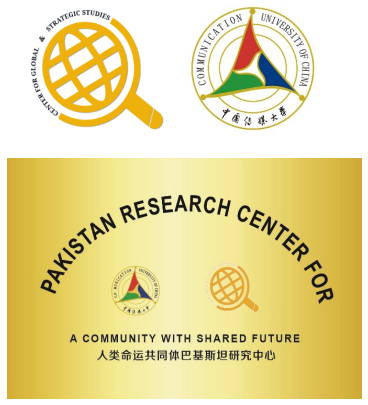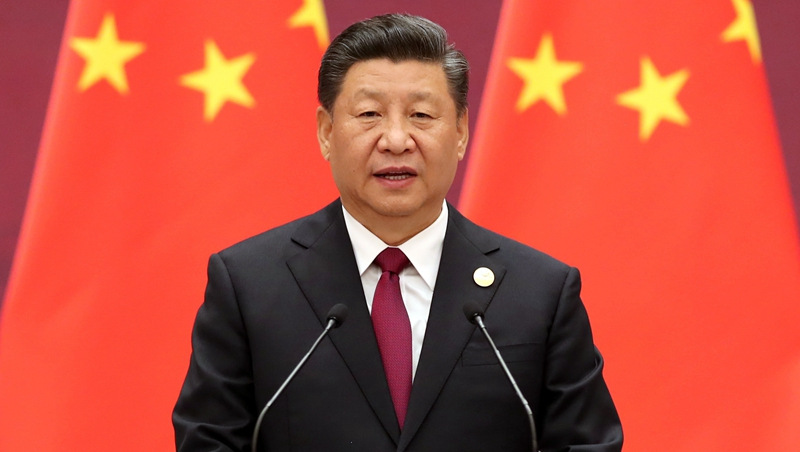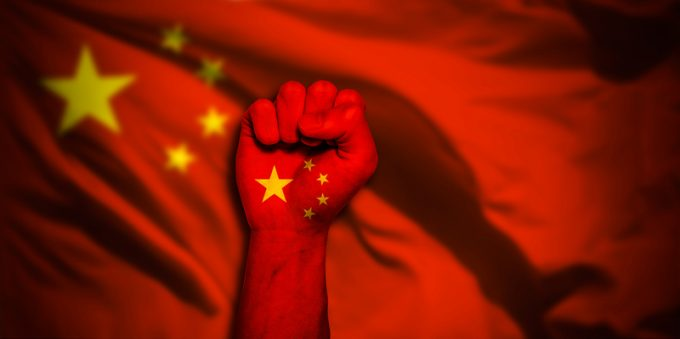

By Ms. Ayesha Khan, Research Intern,
Pakistan Research Center for a Community with Shared future,
Communication University of China (CUC), Beijing, China
Introduction:

To achieve sustainable development and prosperity in this era of disharmony and uncertainty, Chinese President Xi Jinping’s vision of ‘Community with Shared Future’ brings hope for all mankind. The shared community approach is a grand narrative of creating a collective response to emerging threats to international peace and stability. This takes us back to the times when political scientists encouraged security communities. According to Karl Deutsch, for a stable peace, states need to form a security community and integrate to the point that they do not fight each other and resolve their issues by common means. China’s grand vision also aims for a community that prioritizes; peace over war, development over poverty, and cooperation over confrontation. In today’s shrinking world, non-traditional security Challenges potentially jeopardize human beings.
In times when conflicts and tensions have engulfed the international community, this grand vision holds great significance as it talks about mutual interest, win-win cooperation, cultural diversity, and peaceful resolution of the conflict. Furthermore, it is not just a philosophy rather we have witnessed its practical implementation with China’s BRI project that aims for economic development. China’s Belt and Road Initiative brings 193 states together while ensuring benefits for all. This article mainly examines the role of China in integrating its extended peripheries. Moreover, the study analyzes China’s growing engagement in global peacebuilding for sustainable development.
Security- Development Nexus:
Talking about multilateralism and global integration, one should not forget about the threats we are facing. Today, we live in a world where the nature of conflicts has changed. Security-Development Nexus has established a central place in policy and practice in this situation. It is not a surprise that development and security are closely linked. If we go down to memory lane, there are several examples where countries have tried to foster stability and security to achieve development. Security is the first condition for development. It is like a double-edged nexus, as development also leads to a more secure world. Thus, with its multidimensional approach, China has become a builder of world peace. As mentioned above, the nature of conflicts has changed in the post-Cold War era. No state can live in isolation and the intra-state conflict (a dominant form of conflict today) also poses a threat to other states’ progress. Thus, security-development nexus along with Chinese grand narratives can be a way forward to triumph in the realm of economy and politics.
China’s Ambitions for a Peaceful World:
The emergence of Liberal Institutionalism as the main competitor to the Realistic school of thought in International Relations has emphasized collective security under joint communities. However, this cannot be possible without the assistance of the regional Countries.

China has been pursuing its “desire to be seen as a responsible power” by upholding the principle of noninterference, committing extensively to the UN Peacekeeping, and supporting the African Union. It is noteworthy that China has been playing a significant role in the realm of peace and development. It has been investing in several multilateral cooperative forums in Africa for poverty reduction, infrastructure development, environmental sustainability, and public health. China has set an example for other states by moving beyond and engaging countries.
One cannot deny China’s longstanding commitment to regional harmony. It has always aimed to mitigate the tensions between regional states and enhance the prospects for regionalization. Concurrently, China has been part of UN peacekeeping endeavors. As Foreign Minister Wang Yi stated:
“China knows full well the value of peace. We will continue to work shoulder to shoulder with other peace-loving nations to give concrete support to UN peacekeeping operations and in particular to African countries.”
China has joined the new UN Peacekeeping Capability Readiness System and provided a standby peacekeeping force of 8,000 troops. Its involvement in UN peacekeeping and peacebuilding missions solidifies its position as a peacebuilder and is an expression of its commitment to the UN Charter. The country has emphasized humanitarian aid operations.
Conclusion:
President Xi Jinping has made considerable changes to the Chinese foreign policy during his tenure. Under his leadership, China has resurfaced in great power diplomacy and entered a new phase that can be regarded as ‘Peaceful Rise 2.0.’ Various scholars have claimed that Chinese diplomacy has become more active and confident under President Xi’s regime. It is also clear that China’s strategic position in international affairs has significantly improved under the dynamic leadership. He has maintained a reasonable balance between Chinese National Interests and its vision for common peace and prosperity. China’s national interest has not been compromised in the name of peaceful rise. The Chinese government has been trying to translate their own local development knowledge into international development. This hugely contributes to the provision of public goods around the world, i.e., the Belt and Road Initiative (BRI). In this aspect, countries worldwide will derive their benefits from such initiatives by China and contribute to President Xi’s goal of common development and shared future.
References:
Hassan Ulusoy, (2003) Revisiting Security Communities after the Cold War: The constructive Perspective. Journal of International Affairs, 8(3), pp.1-2
Heiss, T. (2021). Liberal institutionalism—its threatened past, its threatened future. https://www.brookings.edu/blog/future-development/2018/07/18/liberal-institutionalism-its-threatened-past-its-threatened-future/.
Isdp, Fatoumata Diallo and Niklas Swanström, Niklas Swanström and Julian Tucker, and Fatoumata Diallo. “China's Role in UN Peacekeeping - a Growing Contribution.” Institute for Security and Development Policy. Accessed February 7, 2022. https://www.isdp.eu/publication/chinas-role-un-peacekeeping/.
Peter van Tuijl and Jan van Dorp. How is China Supporting Peace and Development? Global Partnership for the Prevention of Armed Conflict (Stimson Center, 2016).
“What Motivates Chinese Peacekeeping?” Council on Foreign Relations. Council on Foreign Relations, January 7, 2020. https://www.cfr.org/blog/what-motivates-chinese-peacekeeping.
Edited by the Institute for a Community with Shared Future, CUC
To view, kindly visit the following links:
